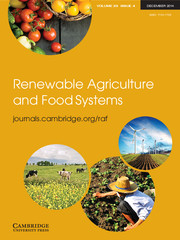As climate change threatens the lives of millions across the globe, particularly the poorest, there is an increasing recognition that it should be thought of as more than just an environmental issue, but equally a critical development issue. This concern is at the heart of Hannah Reid's new book, Climate Change and Human Development, which aims to outline just how climate change affects human welfare and to provide new models for human development in a climate-constrained future.
Currently a researcher working at the International Institute for Environment and Development, Hannah Reid has over a decade of experience working on climate change. Her book underscores that whilst climate change can adversely impact and even reverse social and human development, it also presents the potential to contribute positively to development through the better use of global natural resources and goods. By documenting efforts to cope with and respond to the impacts of global warming through a collection of real-life scenarios, Reid argues that ‘the world's poor […] hold many of the solutions for how best to cope’ with climate change (p. viii).
Gracefully written and unambiguously argued, Reid's clear, precise and articulate use of language makes her book accessible to the non-scientific reader. Although Reid's book doesn't bring anything new to readers already deeply engaged in climate change discussions, it encompasses the chief points, elegantly linking the dots between climate change, poverty and development. The clarity of her arguments emphasizes that climate change is indeed ‘here and now; it is human-induced; it will multiply threats to health, education, livelihoods and food security’ (p. 8). The case studies support her arguments, demonstrating exactly how people are currently suffering and coping. In the Sahel, for example, the semi-nomadic Tuareg people have reduced their vulnerability to drought through the establishment of ‘fixation points’ in order to ‘manage and use surrounding resources better and protect them from encroachment by farmers’ (p. 135).
Although difficult to evoke all the dimensions in which climate change impacts human development, this book does touch on a wealth of topics. Defining human development in itself is complex and riddled with polemics. Reid raises this topic, even if only at the end of her book, to remind us that economic growth does not denote development. Given that the debates and policy dialogs on climate change are overwhelmingly dominated by economic, technical and environmental considerations, Reid's book is an inspiring and fresh approach to considering climate change from a social and human development point of view.
The key of the book is that ‘a one-size-fits-all development approach will not work’ (p. 231) and that tackling climate change ‘needs a new model for human development that reaches far deeper than merely offsetting the carbon emissions resulting from a family holiday in Majorca’ (p. 232). This well-researched comprehensive compilation of case studies emphasizes that ‘the greatest challenge is to build climate resilience and resistance and to secure livelihoods at the local level’ (p. 231). By expressing this, Reid makes a timely contribution to the climate discourse, engaging a wider audience, from climate researchers to the interested lay reader.


